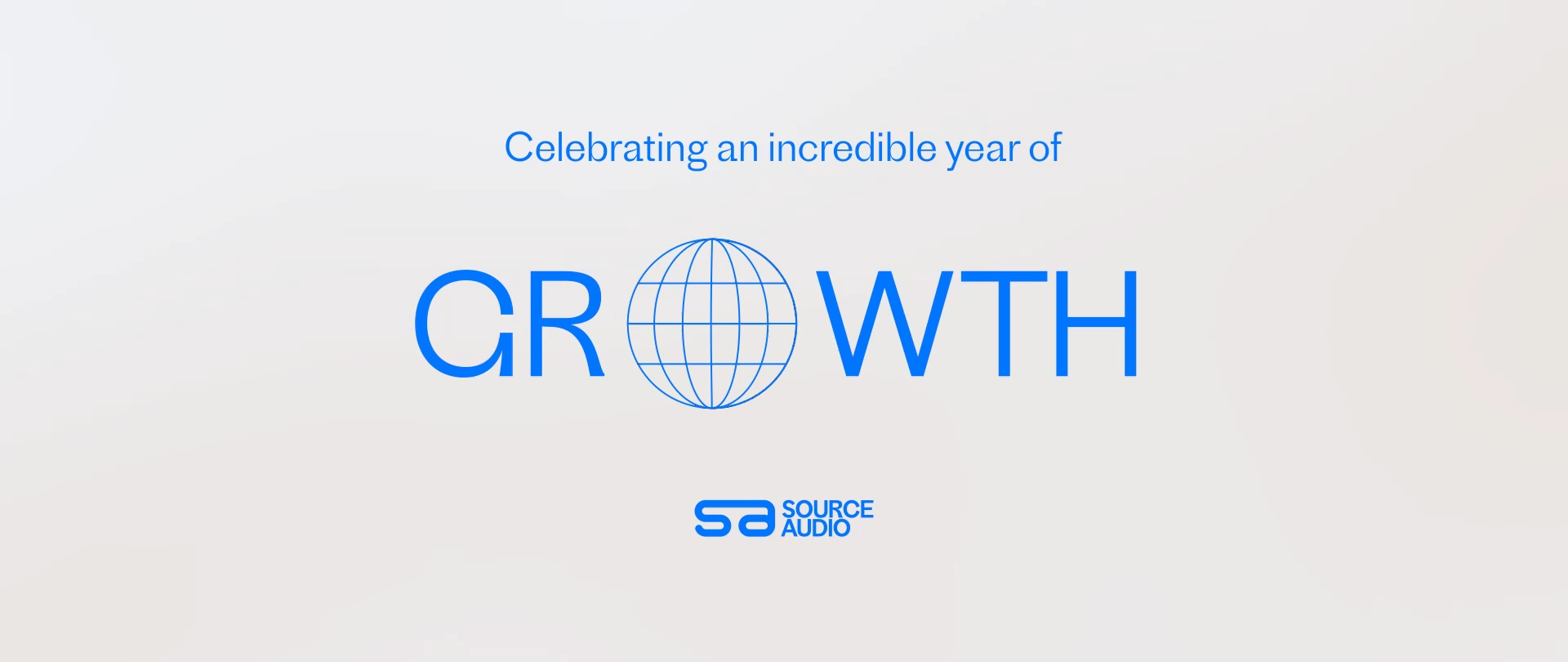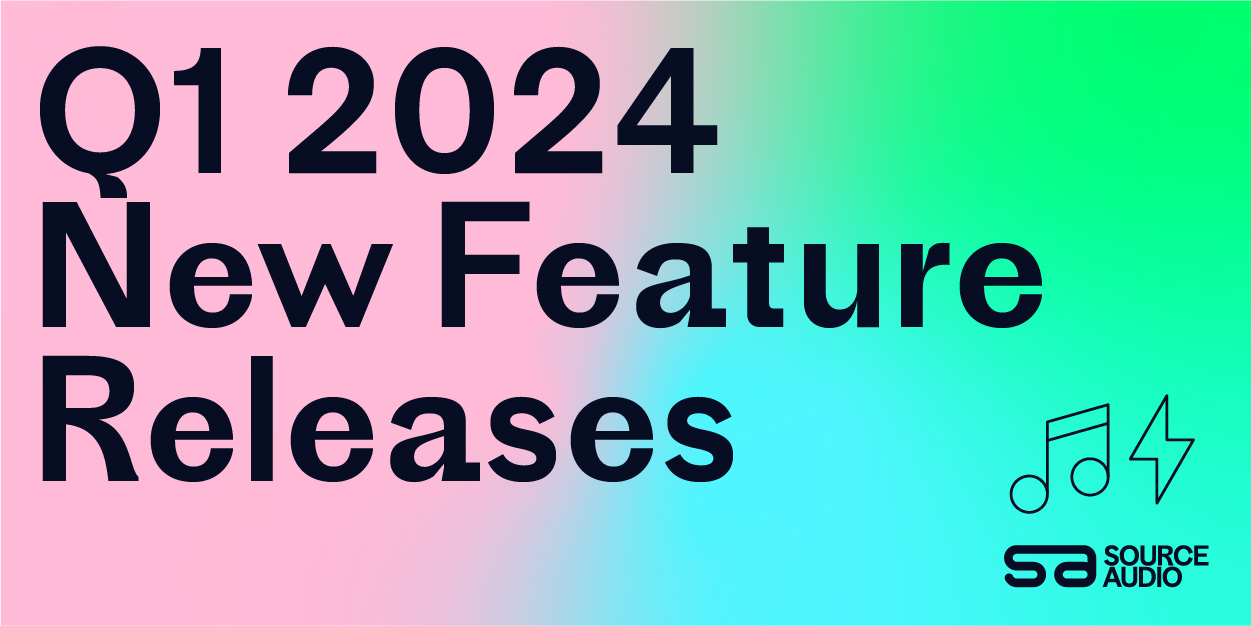Client Feature: Morris & Young Talk Creating Long-Term Success in Music Licensing and Putting the Customer First
Updated December 11, 2020
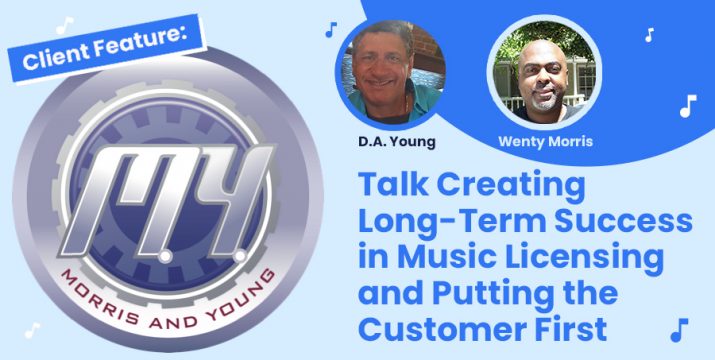
We recently spoke with Morris & Young, who employ professional songwriters and composers to create music for film, television, radio, commercials, and recording artists. Founders Wenty Morris and D.A. Young share their stories on how to create lasting success by putting the customer first.
How exactly did Morris & Young come to be?
WM: D.A. and I were both in bands, trying to take it all the way and make it big as artists, but we got to a point where that was no longer feasible, so there was this moment of reflection where we asked ourselves, “What now? What are you gonna do with all this talent and all of this drive and know-how as far as music goes?”. The only real money that we had made was a placement in 1995 in the movie Clueless. That had paid a nice license fee, and nice backend royalties over the years too, so that seemed like the place to be.
DY: I was an actor and had a few music directing gigs for television. So I was playing a lot of music and then locked down a gig as the sound editor on South Park when it first started in like 1997. Getting into that world I thought television looked like a good market for us, and Wenty had a few leads as well, so we decided to pursue it from there.
WM: 2003 and 2004 was when we really honed our craft writing production music, moving away from singer-songwriter stuff which is what we had been doing, and learning how to do what we do today. We would dive into writing a certain style of music, and really take our time with it. Back then it might have taken a week to do a track because we were being so meticulous with it in that learning process. Then by 2005 we linked up with music supervisor Isaac Zea for Access Hollywood, we started getting placed on NBC, and we landed writing gigs for MTV, so that’s when we started to see some validation for our work. After that it was a lot easier to get people to return your calls, having worked with NBC and MTV.
Is there a specific market that you focused on, or do you focus more on casting a wide net?
WM: From the jump street it was a wide net because we didn’t want to be pigeonholed. We have all kinds of music like eastern european music and middle eastern music that we’ve each composed. We just got a big request for Indian music, so people definitely know that we have a wide net and a lot of variety in our catalog. It was funny when we were starting out we would get asked what we do and we’d say we do everything and they’d go– “that’s what we don’t want to hear, because not everybody does everything well.” There are certain things we haven’t tried, but blues, country, hip-hop, rock, tension, drama, electronic, quirky/comedic, we do all of that.
DY: The composers that we work with are all excellent at what they do. Some have a very specific niche, some have a broader discipline, but the quality is always there.
WM: What’s really important is that you hit the mark for what you’re calling your music. If you’re calling it “1960s jazz” it needs to actually sound like what 1960s jazz sounds like. If you’re doing “surf rock” it better sound like surf rock.
What would you say is the most significant change that you’ve seen in the industry over the years and how have you adapted in response?
WM: One of the most obvious changes is the delivery of music. When we first started working we were supplying Access Hollywood and Bunim/Murray, and they wanted their music delivered on CDs. So we were burning all these CDs, putting labels on them, doing jewel boxes where we were literally writing out metadata on labels on the cases like genre and writers. It was rough, but that’s something that we’ve always taken pride in– if that’s what the client wants, that’s what we were gonna do. We’re not gonna try and talk them into something else, just give them what they want.
DY: Television licensing is also very different today.
WM: Yeah, there used to actually be licensing fees for televisions placements, and now you’re expected to provide music for television use with no upfront payment. This gratis license structure for cable has become the new normal, and we resisted it until we couldn’t anymore, but it’s just a fact, free licensing is the new normal.
Can you share any events or turning points in the company’s history that have had a lasting impact or shaped how you approach your work?
DY: Being music directors and doing scoring work has offered great challenges and broadened our perspective.
WM: Or the one time we did a work-for-hire thing with ABC for this Bob Saget show when he was trying to get back into the America’s Funniest Homevideo market, that was interesting. But I will say this, we had a mentor early on who gave us so much information, it took our learning curve to warp speed. His name is Greg Debonne. He is a music supervisor, and he was the one who told us how editors and music supervisors wanted their music. Things like arrangements, including mixes with only certain instruments, all kinds of invaluable things that would take people years in the trenches to learn from their own mistakes. He was dropping knowledge left and right.
DY: I would second that!
Synch can be a crowded space, do you make it a point to stand out from the crowd, and if so, how?
WM: I personally think it’s relationships, relationships, and relationships. At the end of the day, we’ve always gone out of our way to make sure there are lunches and that we put in the time to meet people. You can talk to someone on the phone and that’s all well and good, but when you really build a rapport with someone it’s different. To us, it was always important from the very beginning that we ingratiate ourselves with as many people as possible, because once you’ve got that, the music speaks for itself.
It’s a really cool industry to be in because editors and music supervisors move around between jobs and companies, and if you have a relationship with them they’ll take you wherever they’re going on their next journey. Then once you’re there you’re in a whole new space meeting all new people, and after a while it really starts to add up.
Do you have a company mission that guides your business development or customer experience?
WM: We’re like any business worth its salt, we’re just concerned with taking care of our customers and making sure that they have what they need when they need it; that it’s quality and we don’t keep them waiting. If we get a request for music, we try to knock it out within an hour or two, because we understand that when a request comes in it’s probably going out to our competitors too. We’re in an early bird gets the worm kind of game. Also it’s a beautiful thing having a small company and being able to pivot and change direction on a very short notice, whereas a bigger company would have a harder time.
Any all time favorite placements you’re especially proud of?
WM: This is going to sound corny, but it’s all aggregated income, and personally, I look at all placements the same. They’re like my kids, I love them all, maybe for different reasons, but I’m grateful for every single placement we get. It can be on a network that doesn’t pay very much or one where it’s a ton of money, because one placement leads to another placement. If you’re in a situation where you’re getting placements on a network that doesn’t pay as much as another, you might want to say “oh this sucks”, but if you’re helping somebody out, two or three years later they could be in another position giving you new work.
DY: I always feel fortunate to be doing something that we love to do and getting paid for it. We were having fun and it led to generating revenue. How many people get to say that?
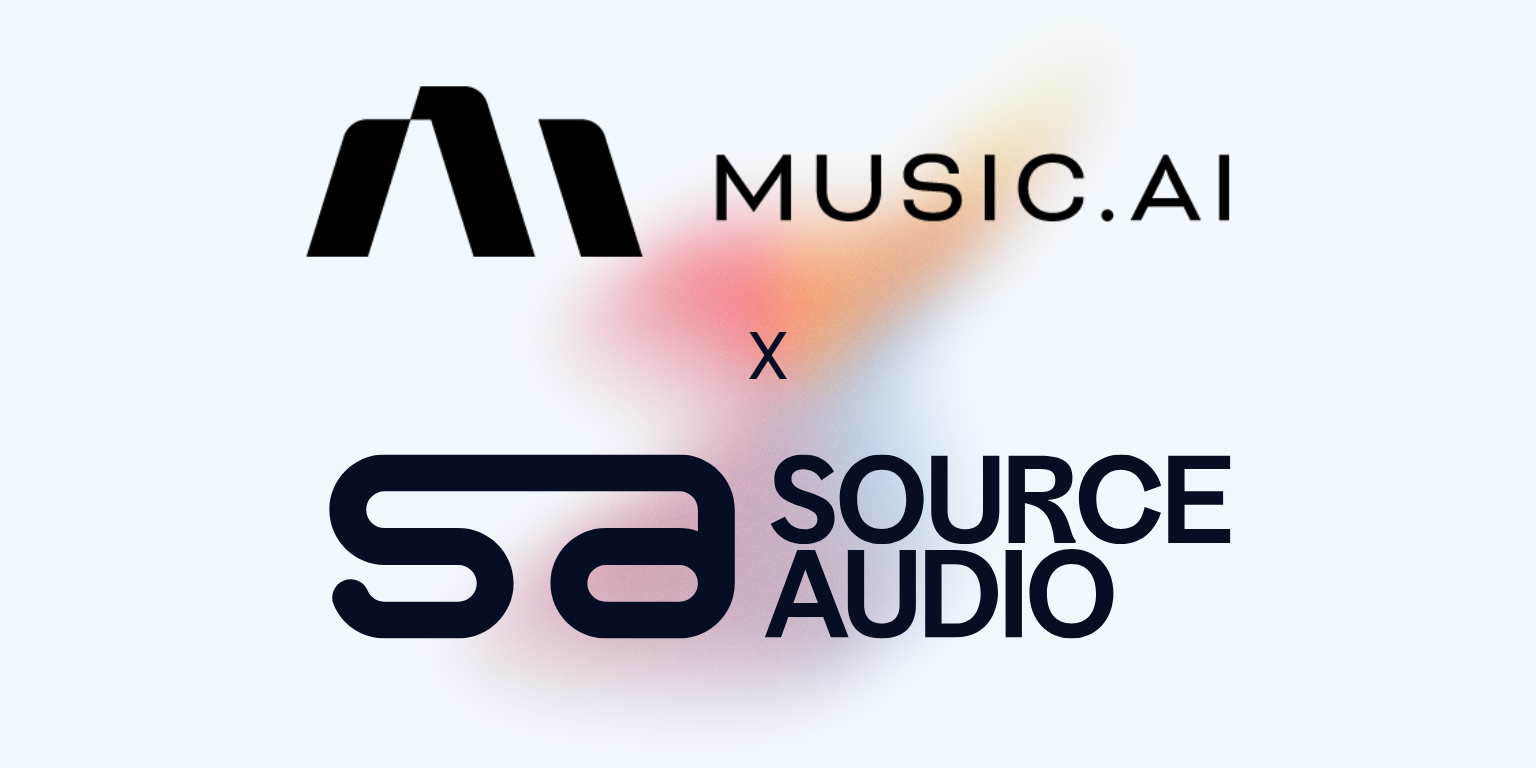
Industry-Leading Stem Separation Comes to SourceAudio
We are excited to announce our latest partnership with Music.AI, bringing groundbreaking AI-powered stem separation directly to our platform! This integration allows you to create broadcast-quality instrumentals and stems with unmatched pr...[ READ MORE ]

FREE AI METADATA – Now on All Catalog Manager Sites
Supercharge your music library with cutting-edge AI-powered metadata -- on us! Every Catalog Manager site now comes with FREE AI metadata tagging for your entire catalog. Leverage this incredible tool now, and read on to learn how it can d...[ READ MORE ]
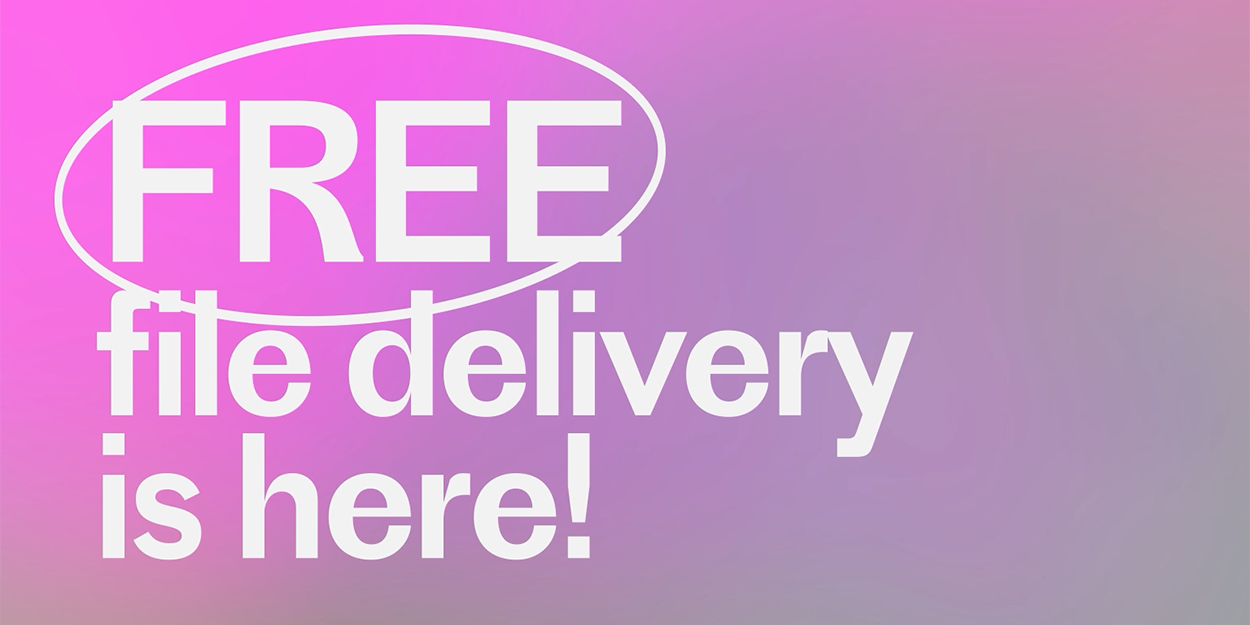
File Delivery is Now Free and Included for All Catalog Manager Sites
Every Catalog Manager site now comes with 250GB of FREE file transfer space every month – that's approximately 9,000 WAV files, every month. Not using file delivery yet? Here are 11 ways this powerful tool can supercharge your business....[ READ MORE ]

Our E-commerce Add-on Is Now Free for All Catalog Manager Sites
E-commerce is now free for everyone! In the spirit of creating as much value as possible for our community and clients, what was once a paid add-on is now free for everyone. Not using e-commerce on your SourceAudio site yet? Here are 12 way...[ READ MORE ]

